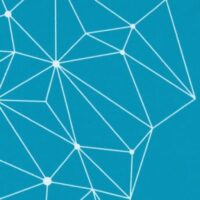Practical Ethics at Your Service
“Ethical alignment is profitable, sustainable, and reduces risk.”
— David Gleason

Your ethics should work for you — they should engage you and make you feel healthy, with a sense of pride and meaningful self-direction. Your ethics provide the groundwork for traits like integrity, authentic collaboration, and friendship.
Relationships launch with with a hail of ethical evaluations. Does a person’s profile align with my needs and values? Will their services fix my problem? Is there enough common ground to do business together? Is it worth the effort? We then adapt as required, seeking to thrive in relation to others and our own physical circumstances… and often we compromise to make it all work.
This site provides tools, discussions, and resources in a collegial space for learning, exploring, and building usable understanding. Use it to do better by doing right.
Informed, collaborative, and distributed decision-making
People and workplaces that are highly effective align collaboratively around decisions. They implement coherently and planfully, and promote continuous quality and professional improvements subconsciously. Such spaces adopt constructive ethics individually and as stakeholders — a way of working together. When we make this ethic clear, explicit, and acculturated, it operates recursively. Stress decreases, and creativity increases.
As individuals and groups, we design, operate, and relate according to our ethics — subsumed decisions that we have about ourselves, our relationships, language, cultures and so on. The ethics of those previous decisions and actions determine options currently available. Today’s decisions, in turn, then influence everything from personal health, to the value of brands, to the resilience of a society. In sum:
On a personal level, operating on an effective ethic simplifies life and reduces stress because you know the next right thing to do, and why. Furthermore, ethical frameworks reduce decision fatigue, impulsiveness, and paralysis.
How Ethics, Morality, and Law Interact
Ethics are your way of navigating the world. What you perceive, the choices you make, and the actions that you take. Events, learning, and decisions in your past guide you, mostly subconsciously. Your accumulated ethic is your way of interacting with the world.
Naturally, working with others whose ethics align with yours is easier. Distinct from morals and feelings, group ethics determine organizational behavior. Whether those rules, policies, and statements are written or just “understood,” ongoing membership requires upholding the organization’s operating policies. These policies derive directly from organizational ethics. If those ethical principles are muddled, then chaos ensues, for example, in contradictory HR policies. We codify, acculturate, and practice ethics like technology, “set it and forget it.”
By contrast, morals are values that are primarily personal and close-held. Often shared in religious or community settings these moral beliefs guide behavior. For example, do you prefer Montana, Louisiana, or NYC? Which companies have similar values to yours? Where can you align and work collaboratively with others?
Successful ethics must operate within legal constraints. Willful illegality and corruption force conflict between your internal and public ethics. You lie a lot, compromising your integrity and your well-being.
Constructive Strategies
Effectiveness therefore arises from ethics, morals, lawfulness, and dialogue. A sustainable ethic focuses primarily on human stakeholders each with their own ethics, their unique approach to life. Thus groups increase sustainability and effectiveness when they declare their principles.
Acknlowedgeing that ethical frameworks can be put to ill uses — a destructive person or corporation still has a “way of operating” — it’s hard to keep customers if your motivations are corrupt. Even though it’s illegal to steal, immoral to swindle, against policy to x, unjust to y, executing these activities must still follow an ethic, even if it’s misguided, harmful, and ultimately doomed to failure. Goodfellas movie.
In sum, a successful ethical system respects the law, accommodates competing moral frameworks among stakeholders, and advances collaboration by virtue of it’s constructive, prescriptive formula.
Practical Ethics is a uniquely effective toolbox to help accumulate good decisions and build value.
Decisions shape future options, integrating our choices into our lives and habits irrevocably. Good choices serve as gifts to our future selves, forming the building blocks for what comes next.If decisions determine future options, then our choices become irrevocably subsumed into our lives and our habits. Gifts to our future selves, good choices are building blocks for whatever comes next.
When a crisis arises, our initial response is habitual – we ask, “what do I usually do?” If that approach fails (and we can remain calm), we start formal decision-making – gathering and analyzing what we know, striving to learn more, and seeking alternative solutions before making a decision.
Informed deliberation then leads to better outcomes. Such well-made decisions not only solve current problems but also set precedents that we can repeat effortlessly.
These principles apply to individuals, organizations, cultures, and governments. For instance, production lines incorporate industrial design decisions, and managers then learn how to accommodate inevitable design shortcomings. Government procedures, once established, can either facilitate or hinder its citizens. Thus, the quality of life depends on thousands, if not millions, of accumulated decisions over time.
Here you will find tools, discussions, and resources to help you articulate your subsumed ethics and, if you are so inclined, challenge yourself to build on them.
